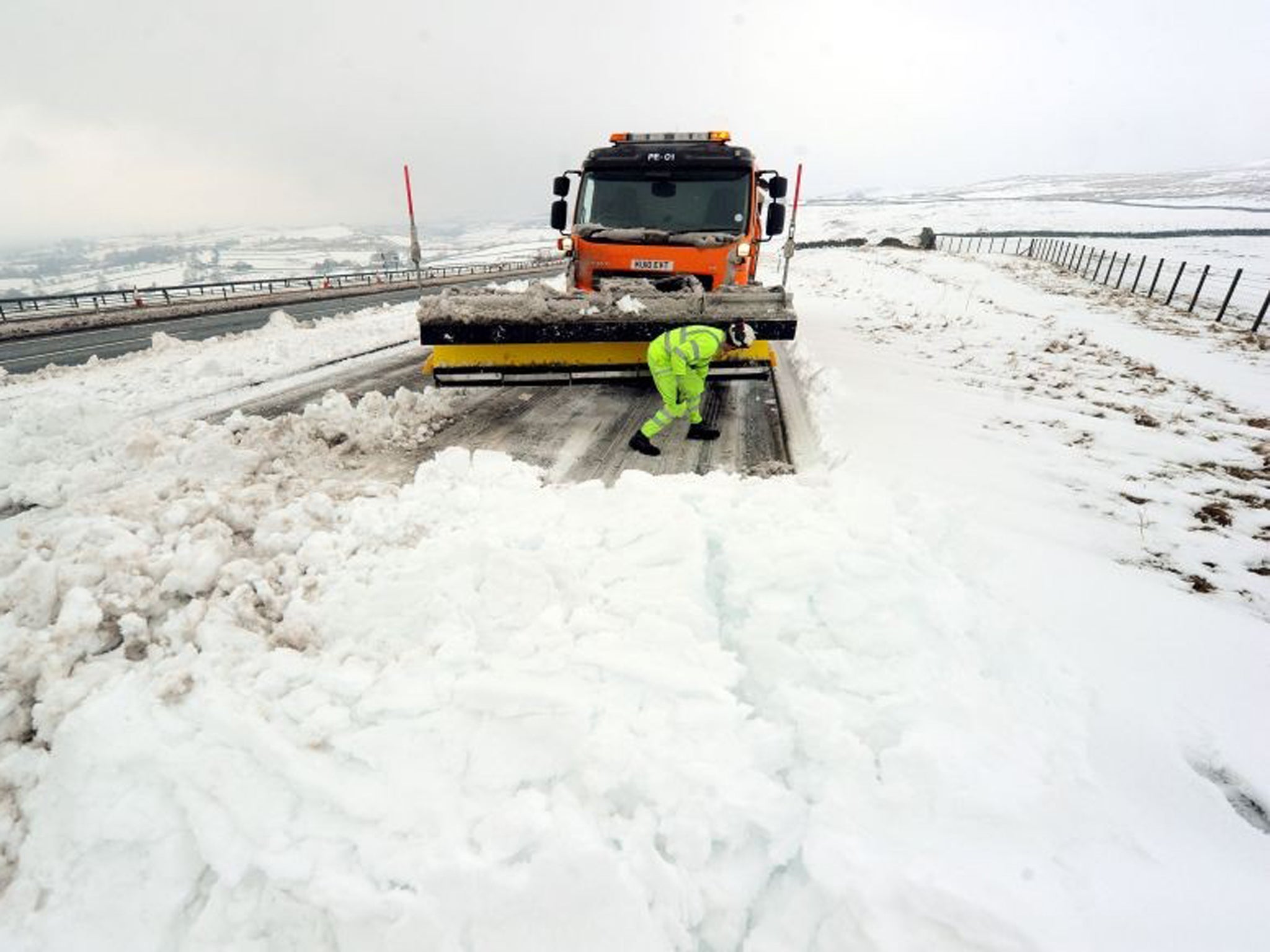Snow and cold weather in March adds £80 to cost of home heating
Increases in energy prices threaten to push much of the population into fuel poverty

The average household energy bill for March will be £80 higher than in previous years, as the cold spell forces people to keep their heating switched on, a price comparison analyst warns.
The extra heating costs mean households will spend £165 on gas and electricity this month, double the typical amount for March, according to MoneySupermarket.
With annual “dual fuel” gas and electricity bills already standing at a record £1,300 and further price hikes expected next winter in the wake of rising wholesale gas prices, the extra £2.2bn that households will collectively spend on heating this month will put further strain on budgets.
Clare Francis, of MoneySupermarket, the price comparison website, said: “There is no doubt that this winter, and the cold start to spring in particular has really hit households hard at a time when the cost of heating your home is steadily rising.”
Households are also likely to spend much more than normal on heating next month as weather forecasters yesterday predicted unseasonably low temperatures until the end of April.
The continuing cold weather will heap further pressure on the UK’s dwindling gas reserves, which last night stood at just 36 hours of supply. Analysts said the Easter break would ease pressure on the system as power-hungry companies downed tools for the long weekend, helping avert the danger of running out altogether. However they warned that reserves were now so low at Rough – Britain’s largest storage facility which accounts for 75 per cent of capacity – that the facility, off the Yorkshire coast, remained in danger of running out for the first time within the next ten days.
The scale of the increase in spring energy bills will intensify the spotlight on fuel poverty, according to a separate new report yesterday. A household is considered to be in fuel poverty if more than 10 per cent of its income is spent on adequate heating, defined as 21C for the main living area and 18C for other occupied rooms.
Some 5 million UK households, or 19.2 per cent of the total, are in fuel poverty, putting the country at the bottom of the 13-country league table for Western Europe, according to the Association for the Conservation for Energy, which blamed “woeful levels of insulation”. The Netherlands topped the league, with just 8.1 per cent in fuel poverty, followed by Belgium, Sweden and Austria.
Consumer advocates said the high spring bills and fuel poverty levels were particularly alarming because they come against a backdrop of inevitable long-term rises in energy costs which will push heating out of reach for a large portion of the population.
£16.4m payout for gas bosses
The five top executives at British Gas-owner Centrica collectively received a total payout of £16.4m last year, as millions of cash-strapped customers struggled with rising energy bills.
Phil Bentley, the outgoing managing director of British Gas, saw his package jump by 50 per cent to £3m, helped by a £1.5m long-term bonus. Sam Laidlaw, Centrica’s chief executive, received £4.96m.
Subscribe to Independent Premium to bookmark this article
Want to bookmark your favourite articles and stories to read or reference later? Start your Independent Premium subscription today.

Join our commenting forum
Join thought-provoking conversations, follow other Independent readers and see their replies